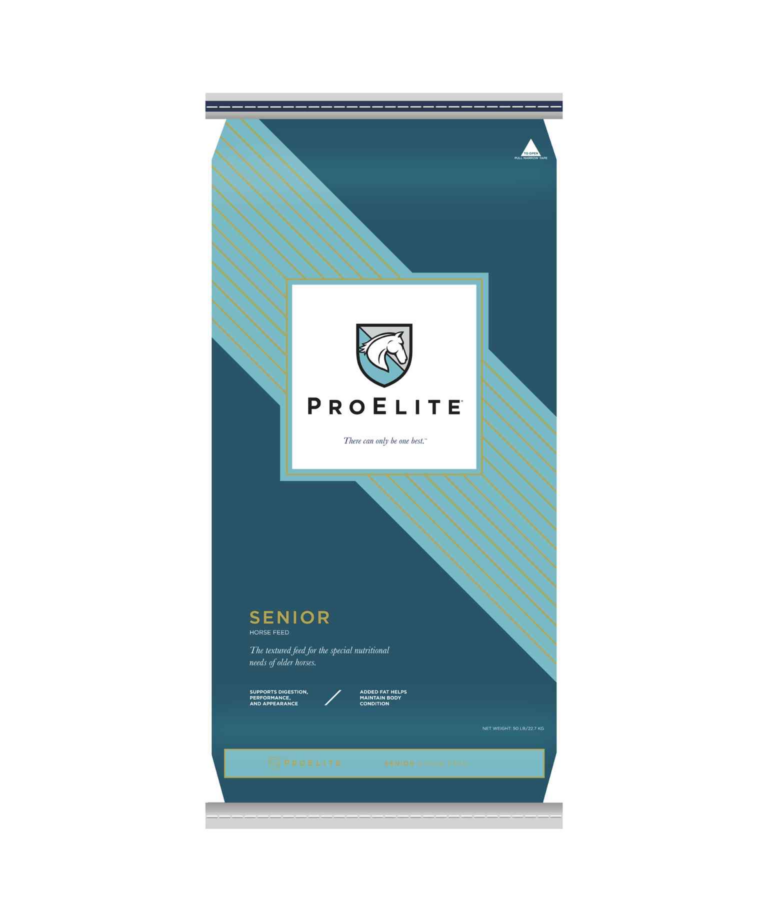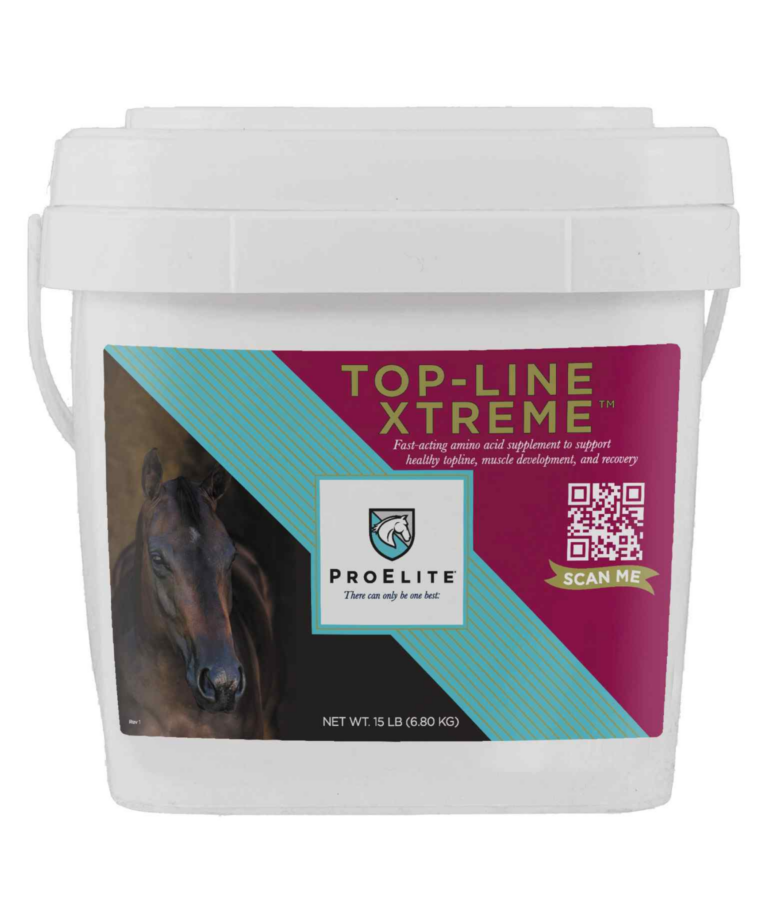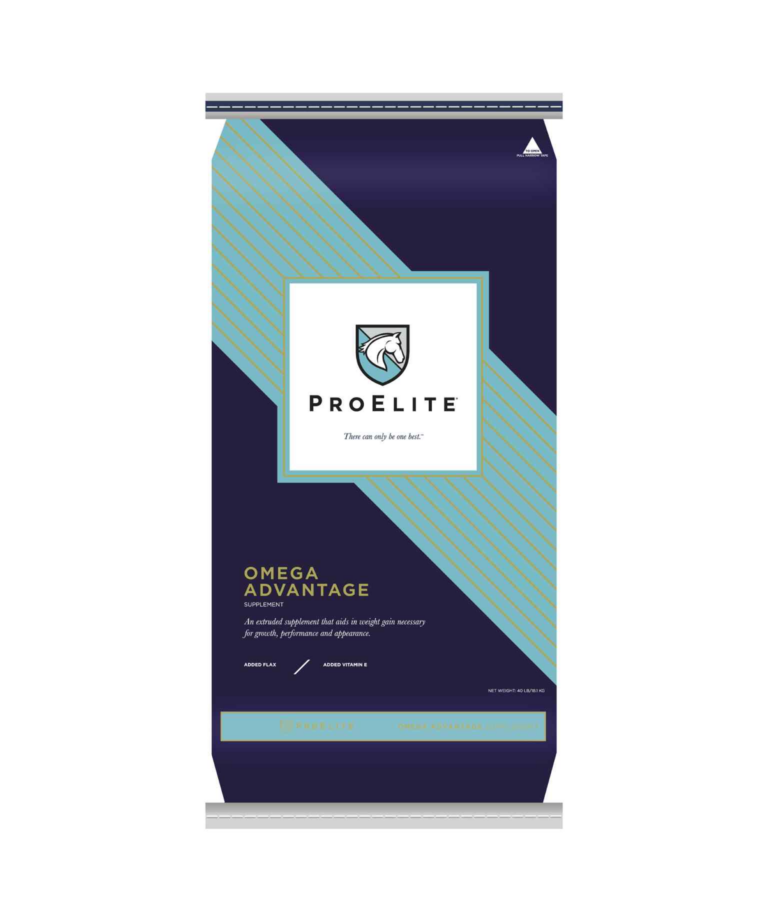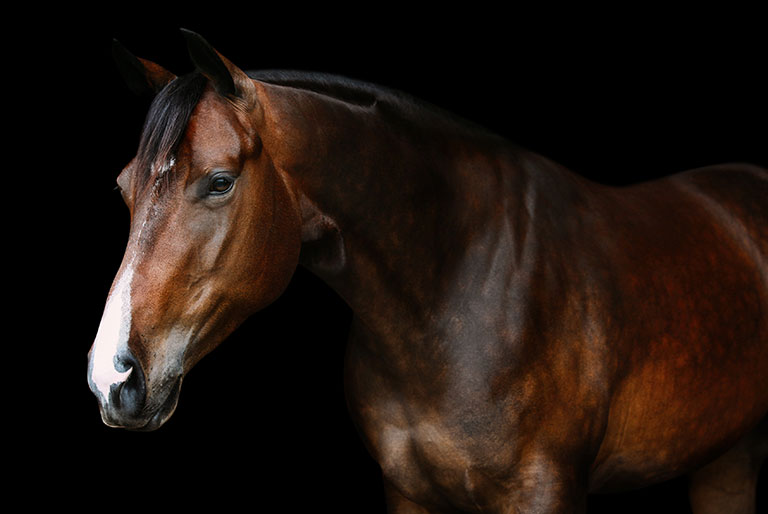Feed Like the Pros: Best Nutrition for Hard Keepers
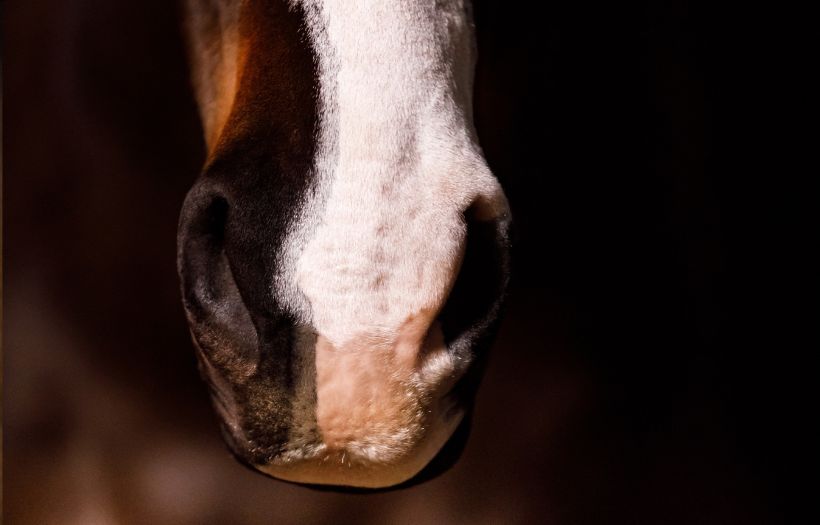
How are elite equestrians feeding their hard keepers to keep them at an ideal body condition? The answer is on the feed tags and labels. In this blog series, “Feed Like the Pros,” we reveal expert advice on equine nutrition, including how to feed hard keepers and what ultra-premium ingredients to include in their diet.
Keep reading to learn the best nutrition for hard keepers or underweight horses so you can feed them like the ProElite® pros.
Body Condition Score
Before deciding an ideal diet for your horse, it is important to evaluate their Body Condition Score (BCS) and understand why your horse might be underweight or a hard keeper. The BCS scale ranges from 1-9 as follows:
- 1 / Poor
- 2 / Very Thin
- 3 / Thin
- 4 / Moderately Thin
- 5 / Moderate
- 6 / Moderate to Fleshy
- 7 / Fleshy
- 8 / Fat
- 9 / Extremely Fat
Ideal BCS should fall within the 4-6 range, and nutrition requirements will vary depending on why your horse needs to gain weight. Please consult a veterinarian if there are questions about the best nutrition for your hard keeper or if you have concerns about your horse’s Body Condition Score.
Best Nutrition for Hard Keepers or Underweight Horses
To get the best output, you need the best nutritional input. All horses require premium ingredients and reliable calorie sources to maintain an ideal body condition, especially hard keepers. When choosing the best feed and supplements for weight gain in addition to prioritizing high quality hay, it’s important to keep these key feeding fundamentals in mind:
- Fat: With higher calorie requirements, hard keepers often benefit from high-fat diets because fat is an efficient energy source. Fat contains more than double the calories of carbohydrates and protein, so high-fat feeds can help support energy intake without increasing the quantity of feed needed. Many trainers, competitors, and rehab barns choose horse feed with at least 10% fat for their underweight horses and might also include a top-dressing or supplement that adds even more fat content.
- Protein: On average, protein should make up 10-18% of your horse’s diet depending on life stage and activity level. For horses with higher caloric needs, it is often best to feed at least a 12% protein diet.
- Amino Acids: In addition to looking for protein levels, it is also important to check the amino acid profile. You can support your horse’s muscle development and weight gain since Topline Score often goes together with Body Condition Score. Since amino acids are the building blocks of muscles, they are critical to filling out your horses’ topline. Horses naturally make enough non-essential amino acids, but they rely on their feeding program to provide the other essential amino acids. A combination of feed and/or supplements can be used to source the limiting amino acids they need, like Lysine, Methionine, Threonine, and Tryptophan.
- Starch and Sugar: While starch and sugar offer a great source of energy for athletic horses and their muscle recovery, it is important to look for consistent and guaranteed levels on your feed tags. This is especially important for underweight horses who may require higher quantities of feed or are experiencing metabolic concerns. Regulated NSC (Non-Structural Carbohydrates) will always be listed on a ProElite® feed tag, so you can be confident in how much starch and sugar you are adding to your horse’s weight-gain regimen.
- Fiber: Digestibility is important for horses that need to gain weight, and that is where fiber can be a key player. While the majority of a horse’s fiber requirement should come from roughage, grain can be a great secondary source of highly digestible fiber. Not only can good fiber sources support gut health, but increased digestible and fermentable fibers can also support muscle tone, body condition, and overall health in your hard keeper.
Choose the Winning Combo
Because of the demanding nutrition requirements for hard keepers and underweight horses, elite training programs, boarding barns, and rescues trust ProElite premium products to support weight gain. While there are many combinations of feed and supplements that can meet your horse’s caloric needs, here are some of ProElite feed’s most popular for weight gain or hard keepers.

